Monthly Journal
January 2023
International Press Review
The most relevant events of the area through international sources
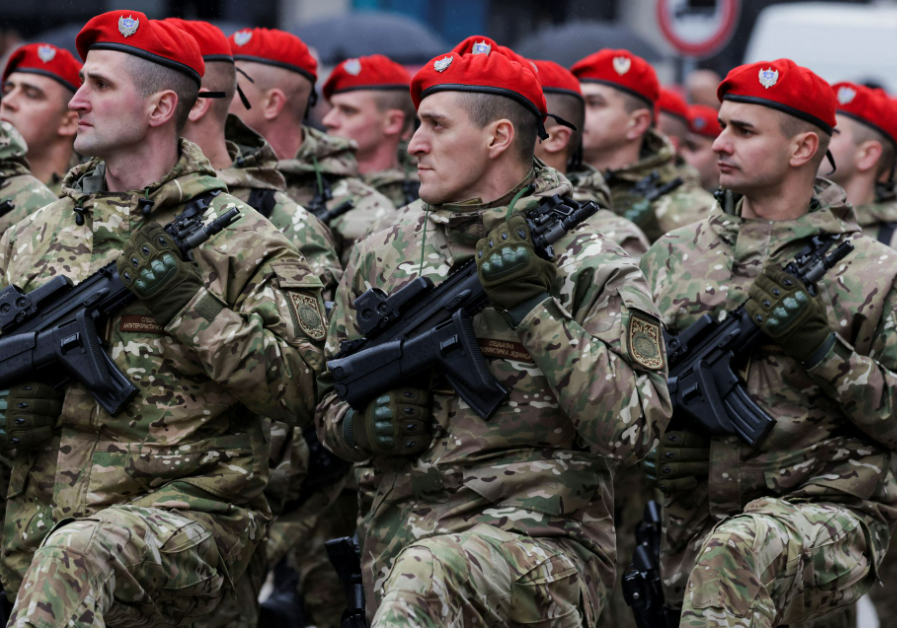
Bosnians Serbs celebrate unconstitutional holiday again
Reuters
Although banned by the Constitutional Court years ago, Bosnian Serbs celebrated the Republika Srpska statehood day in January with a parade of armed police, special forces and armoured vehicles in East Sarajevo town, on the borders of Muslim Bosniak-dominated Bosnian capital, Sarajevo. Republika Srpska is the Bosnian Serb political entity in Bosnia and Herzegovina. The celebration is seen as a provocation by Muslim Bosniaks. “We only want to say we are here and we are ready to fight for our freedom,” said the Republika Srpska separatist and pro-Russian President Milorad Dodik, adding that the goal of Serbs in Bosnia remains to have their own state which will then unite with Serbia. On the occasion of the Bosnian Serb National day, Dodik bestow an award on Vladimir Putin, drawing criticism from the international community.
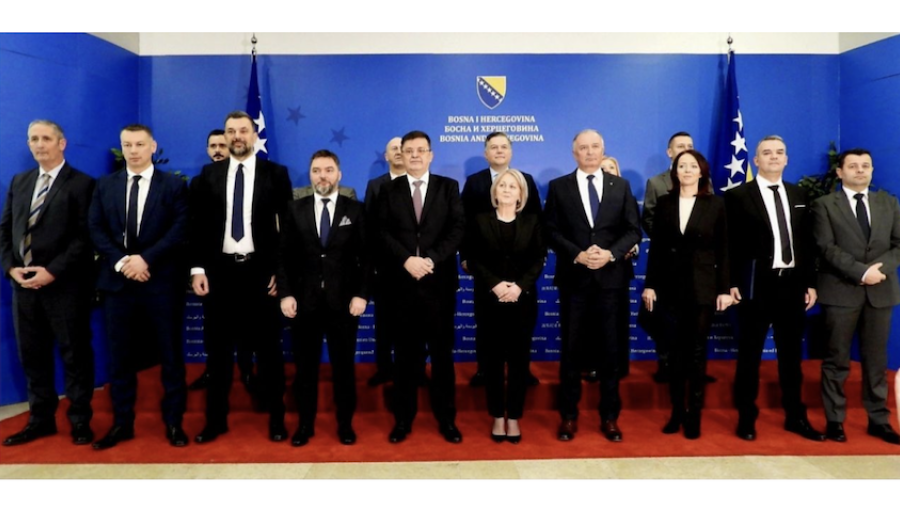
Bosnia gets new government quicker than expected
BNE Intellinews
Bosnia and Herzegovina appointed a new state-level government in January. The government, led by Bosnian Croat politician Borjana Kristo, aims at re-establishing the country on the route to EU membership. The government was formed rapidly, roughly four months following the October 2 general elections. That was a surprise for many, given that for political parties in Bosnia it normally takes more than a year to reach an agreement and form a cabinet. When Kristo was nominated in December, she stated that she would lead the government in resuming the EU integration process. After years of waiting, Bosnia was finally given EU candidate status in mid-December.
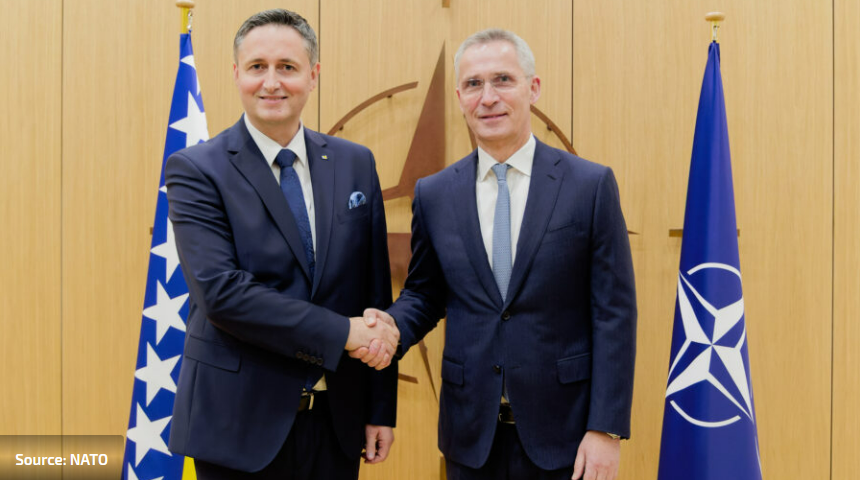
Bosniak Presidency’s member plea for more NATO integration
N1
Denis Becirovic, the new Bosniak member of the BiH Presidency, met with NATO Secretary-General Jens Stoltenberg in Brussels in January, conveying the message that Bosnia and Herzegovina is willing to intensify its path toward full NATO membership. On that occasion, Becirovic emphasized his commitment to do all in his powers to bring BiH in NATO as soon as feasible. However, Bosnian Serbs strongly opposed the integration of the Balkan country into NATO.
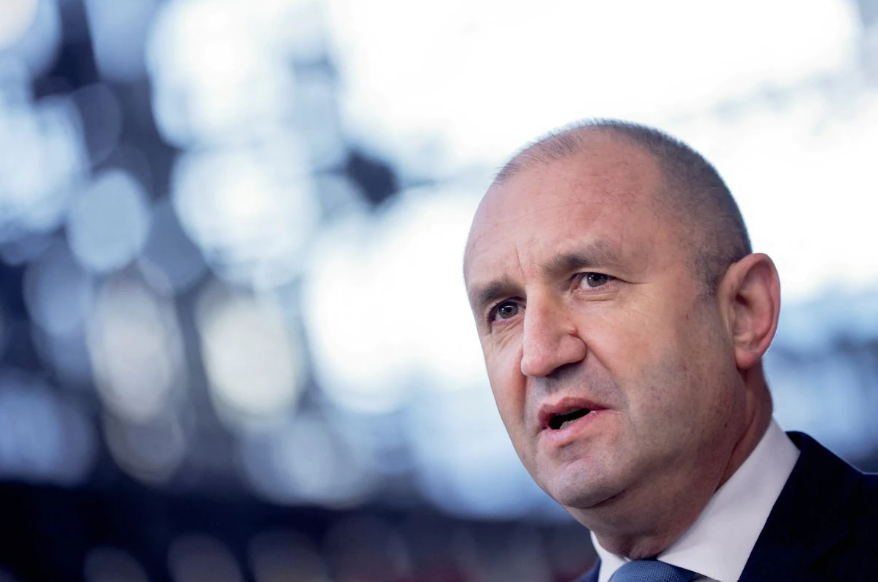
Bulgaria heading for fifth election in less than two years
Reuters
Bulgarian President Rumen Radev announced the country’s fifth parliamentary elections in two years, now scheduled for the 2nd of April. The elections will be held after the October 2022 elections ended with inconclusive results. Radev was forced to dissolve parliament as the Socialists became the third political party that failed to form a new government, lacking enough support among MPs. Bulgaria has been racked by political instability since anti-graft rallies in 2020.
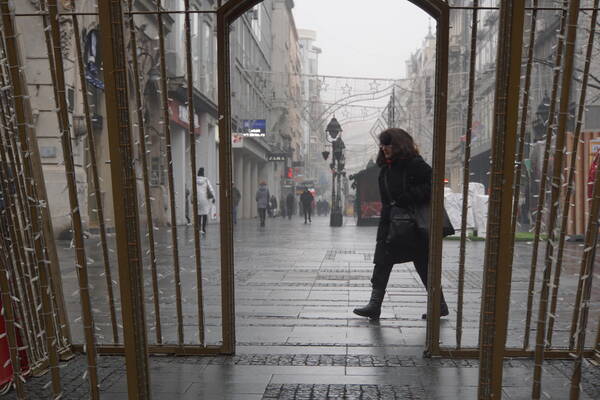
Support for EU integration in Serbia in downturn
Serbian Ministry for European Integration
The support for the EU integration is falling in Serbia. According to the latest survey from the Serbian Ministry for European Integration, only 43% of Serbs today against 73% in November 2009 would support the accession of the country to the European Union in a referendum, one of the lowest percentages ever recorded. More than 50% of Serbs think that the problems in the relations between Belgrade and Pristina should be addressed regardless of the EU stance on how to resolve them.

Anonymous targets Serbia for its pro-Russian stance
BNE Intellinews
At the beginning of January, hackers targeted the websites and IT infrastructure of Serbia’s Ministries of Internal Affairs and Defence, as well as President Vucic’s official website. Anonymous, on of world’s largest hacking organization, claimed responsibility for the attack. Anonymous has rebuked Serbia for failing to take a stand against Russia’s invasion of Ukraine. “Serbia is a Russian backdoor to Europe that needs to be fixed,” Anonymous said.

Radical Islam propaganda in North Macedonia gets sophisticated
Balkan Insight
Experts believe radical Islamist organisations and individuals are still employing closed groups and encrypted platforms for targeting Muslims in North Macedonia with extremist messaging. Such propaganda, mostly in Albanian, is spread by small religious groups and imams and is aimed at the country’s ethnic Albanian minority, experts said. Radicalization was an issue in Bosnia and Herzegovina and Kosovo in recent years, although it has now diminished.
The Insight Angle
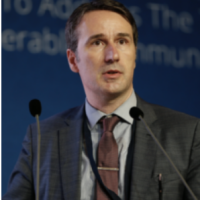
Adrian Shtuni
Washington DC-based foreign policy and security specialist,
with a particular focus on the Balkans and Middle East.
He is one of the most authoritative experts on violent extremism and radicalisation, as well as consultant to international organisations and other institutions in the United States, Europe and Asia on preventing and countering terrorism and other transnational threats.
How would you rate the risks related to Russian influence in the Balkans, particularly in Serbia and in Bosnia and Herzegovina? Is Moscow a genuine threat for the region, also in the light of the war in Ukraine?
In the context of the war in Ukraine, Russia has come to represents the most significant threat to peace and stability in Europe. This threat is particularly serious in the Western Balkans where Russia has systematically exploited ethno-political tensions in order to disrupt the regions’ Euro-Atlantic path and to challenge NATO and EU enlargement. At the same time, it painstakingly seeks to amplify its influence by undermining democratic institutions, installing massive disinformation and propaganda megaphones (like Sputnik, Russia Beyond and Russia Today media platforms operating in the Serbian language) and supporting authoritarian leaders. Active Kremlin supporters and collaborators are known to operate within the political systems of at least three countries in the region. These actors often mix their dangerous brand of ultra-nationalist populism with open support for Russia’s aggression in Ukraine. Judging from the above the risk of disruptive Russian influence and interference in the region is significant.
In the previous months, Albania, but also Montenegro, North Macedonia, and, to a lesser extent, Bosnia, experienced significant cyberattacks, the most disruptive of which came from Teheran against Tirana. Do you believe the Balkans’ cyber-defences are up to par? If not, what are the dangers and what should be done?
The recent string of attacks exposed significant cyber defence vulnerabilities that must be addressed with priority across the region. The disruptive attacks by Iranian-state sponsored actors against Albania’s critical information infrastructure are of particular concern not only because of the level of interference, penetration and damage caused to governmental services but also because of the coercive nature of the attack against the government of Albania, a NATO member, and by implications for NATO itself. In line with the New Strategic Concept of NATO 2022, Albania, Montenegro and North Macedonia should improve their cyber defence infrastructure, networks, and capabilities in order to respond more effectively to malicious hybrid and cyber operations that are likely to increase in number and scope.
You are a leading expert on the phenomenon of ‘foreign fighters’ joining ISIS, some of whom are from the region. Is the problem truly a thing of the past? What are the current major risks/sources of radicalization in the Balkans?
Even though ISIS has been defeated on the battlefield and is significantly depleted as an organization compared to 2014, it would be short-sighted to archive the problem of jihadist extremism in the Western Balkans and Europe in general. Clearly, the number of transnational threats that demand the attention of modestly resourced law enforcement agencies in the Balkans is high and that is a significant challenge. Yet, lowering the guard on the problem of jihadist foreign fighters would be a costly mistake. Jihadist extremism cannot be considered yesterday’s problem as long as the adverse socio-political conditions and the ideologically committed networks that facilitated the radicalization and mobilization of an unprecedented number of Western Balkans foreign terrorist fighters continue to exist and operate.
Is the Balkans a model that can be exported in terms of repatriation of foreign fighters and their families and reintegration into society? If so, could you please elaborate?
Albania, Kosovo, North Macedonia, and Bosnia have so far repatriated 217 nationals from Syria, including 31 men. They are the only European countries to have voluntarily and publicly repatriated ISIS-affiliated male fighters detained by Kurdish-led forces in Syria. The proactive repatriation of their nationals from prisons and IDP camps demands both praise and greater attention. Praise because the repatriation reduces the risk of their contribution to a potential ISIS re-emergence in Syria and Iraq. It also allows for a more effective management of security risks in the long run and provides an opportunity for the returnees’ rehabilitation and reintegration. Greater attention is, however, needed because the Western Balkans have become the region with the highest concentration of returning foreign terrorist fighters and their family members in Europe.
While most of the repatriated foreign fighters have been convicted on terrorism charges and sent to prison, their sentences have been significantly lower than the average prison term in the EU for jihadist terrorism-related offenses. Most of them are set to be released between 2023 and 2025. In preparation for their re-entry into society the authorities would do well to reassess and adjust sentencing ranges and conditional release practices. They should also consider implementing additional prison-based and post-incarceration risk assessment and management tools.
One persistent challenge to keep in mind is that the countries of the region are less than adequately resourced to handle a challenge of this dimensions with significant security implication for the region and Europe in general. The economic shocks resulting from the COVID pandemic and the war in Ukraine have further strained these resources and that is why the continued support (technical and financial) of international partners is very important.
Finally, in terms of security, what are the key issues in the region to be aware of in 2023?
A regional threat environment assessment would certainly include but would not be limited to threats such as: illegal drugs production, trafficking, and distribution; terrorism and political violence; illegal firearms and explosives smuggling; cybercrime and cyberterrorism; money laundering; and irregular migration, human smuggling and trafficking. These converging transnational threats are not particularly unique to the Western Balkans, but they become more challenging to handle in a region with continued flareups of inter-ethnic tensions against the backdrop of the general socio-political and economic instability caused in Europe by the Russian aggression in Ukraine.
What about the Serbia-Kosovo dialogue? Any hope for a permanent solution for the most destabilizing issue in the area?
Judging from the current state of play and the deep distrust between the parties, the prospects of a Kosovo-Serbia normalization agreement are not particularly promising. The latest Franco-German proposal for a new dialogue framework presents a positive development. Yet, as long as the urgency of normalization is more apparent to the international actors facilitating and supporting the dialogue than to the elected politicians in Pristina and Belgrade, it would be hard to reach a final agreement.
Ultimately what needs to change is the mindset of parties engaged in the dialogue. I don’t think that they share a common view on what the dialogue is about. And what is really needed is some fundamental kind of thinking about what the process is supposed to achieve. Clearly both sides believe they are righteous, so the dialogue it is not about something practical, tangible, it’s even not about pure interest. The parties are making it about something almost spiritual or moral, about historical rights, something that needs to be proven not negotiated through concessions. Frankly, until the current leaders of both Kosovo and Serbia can set that aside and look to the future, I’m not sure they are going to make any lasting progress.
The Key Story
Strategic trends
Serbia and Kosovo at a crossroad,
Belgrade denounces EU ultimatum
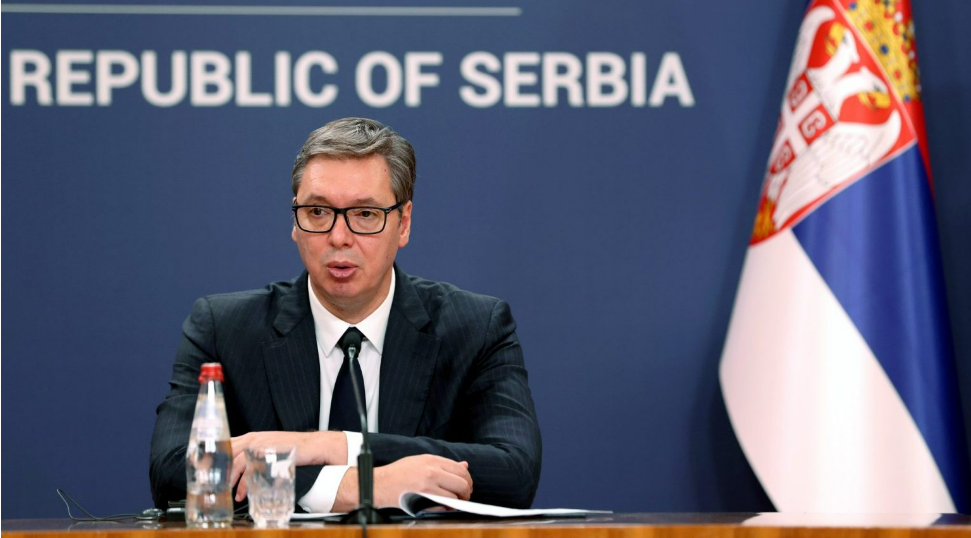
The European Union, supported by the United States, is increasingly pressuring Kosovo and Serbia, in particular, to agree upon the so-called French-German plan, developed in the past months in order to normalize the relationship between Pristina and Belgrade.
Although the content of the plan is still not public and EU officials refused to confirm details about the agreement, several versions of the text have been leaked in international and regional media in the Balkans. In January, the authoritative Serbian daily Danas claimed, quoting diplomatic sources, that the plan includes ten general points. Generally speaking, the main goal of the plan seems to force Serbia and Kosovo to de facto recognize their mutual existence, without still going so far as a de jure recognition.
Nonetheless, the hypothetical agreement could be considered historic, if both Belgrade and Pristina decide to agree on mutually recognizing their “national symbols, passports, vehicle plates” (article 1) and to “exchange permanent missions” (article 8), without opening embassies in their respective capitals. The crucial point, however, is the article that provides that Serbia will give up from opposing the entry of Kosovo into all “international organisations,” implicitly stating that Pristina could try to enter the United Nations. It should not be forgotten, in any case, that the chances are high Russia might exercise a veto against Kosovo.
Even if it represents a step before the full recognition, agreeing on the plan seems particularly difficult for Serbia, which still considers Kosovo an integral part of its territory and does not recognize the independence declared by Pristina in 2008. Moreover, with the EU integration process stalled, it is not clear which advantage Serbia would have in agreeing on the plan, without envisioning concrete steps towards its full integration into the EU. Also, Kosovo might wonder if the plan remains of interest, as the position of Pristina is that any agreement should include “full mutual recognition.” Moreover, Kosovo still refuses to accept the creation of the so-called Association of Serb Municipalities, considering it anti-constitutional.
Nevertheless, Serbia is being pushed into giving a green light to the plan. In a dramatic televised speech, indeed, Serbian President Aleksandar Vucic claimed that EU and US envoys told him that the French-German plan was recently approved by all EU members, including the five member countries that currently do not recognize Kosovo, i.e., Spain, Greece, Romania, Slovakia and Cyprus.
Moreover, the Serbian President said that he was asked to accept the plan, in order to avoid serious negative consequences for Serbia, including a halt of the EU integration process for the Balkan country, the freezing and withdrawal of international investments in Serbia and other measures that could severely harm Serbia politically and economically. “Faced with sanctions and isolation, I favour compromise as much as possible,” Vucic noted, adding that nothing has been signed. A parliamentary session on Kosovo, where Vucic will address MPs, has been scheduled for the beginning of February.
In general, the chances of an agreement between Serbia and Kosovo remain slim, with a persistent risk of new tensions in the north of Kosovo and with the increasing possibility of a further alienation of the Serbian public opinion from the EU, by many in Belgrade seen as willing to impose the plan on Serbia through the menace of an ultimatum.
Further News and Views
North Macedonia’s president point to Russian secret services behind rift with Sofia
Sources: BNE Intellinews, META, Radio Free Europe
North Macedonia’s President Stevo Pendarovski stated that Russian intelligence services are driving an “anti-state campaign” in the country, with the goal of straining even further the already complicated relations with neighboring Bulgaria. Pendarovski stated that “organized institutions” linked to Russian intelligence first were active in July 2022, when Bulgaria dropped its veto on North Macedonia’s EU membership. They continue to exacerbate tensions between the neighboring nations at a time when the administration in Skopje is attempting to push through contentious constitutional amendments in order for the country’s EU accession talks to move forward. Pendarovski made the remarks after an increasing number of incidents between the two countries.
Hungary opposing Kosovo’s bid to European organisations
Sources: Anadolu Agency, N1
Hungarians will vote against Kosovo’s admission to European organizations, including the EU, because allowing Pristina to some European organizations would imperil striking a deal with Belgrade. “The premature admission of Kosovo by several European bodies may endanger the search for reconciliation. As a result, if a vote is held on whether Kosovo should be admitted to the Council of Europe, the government will vote no,” declared Hungarian Foreign Minister Szijjarto. Meanwhile, the Swedish Presidency of the European Union has begun a dialogue with member states on Kosovo’s EU membership application, according to Swedish Ambassador Lars Danielson. On December 15, Kosovo submitted its application for EU membership. The Czech Presidency informed members of the application, which was forwarded to Sweden, which will be succeeded in the EU Presidency by Spain, which does not recognize Kosovo. Kosovo is also not recognized by Cyprus, Romania, Slovakia, or Greece.
Europe should do more in the Balkans
Source: The Guardian
The EU can still wield power and do the right thing by reversing years of neglect in the Balkans, according to an op-ed in The Guardian. Short of accession, significantly more should be offered in terms of game-changing economic support and expanded EU market access. The geopolitical stakes are too high, and Chinese investment is having an expanding impact on the region, for the EU to remain on the sidelines. There is also the unpleasant alternative of encouraging a strategically vital region, the Balkans, to look east as well as west, which would empower ethno-nationalist illiberal forces and advance the Kremlin’s aspirations in Europe’s backyard.
EU - NATO
NATO moving AWACS from Germany to Romania
Sources: Radio Free Europe, Romania Insider, Reuters, Euractiv
NATO has moved several of its surveillance planes from Germany to Romania, closer to Ukraine. The Airborne Warning and Control System (AWACS) surveillance planes arrived in Bucharest on January 17 “to assist the alliance’s strengthened presence in the region and monitor Russian military activity,” according to a NATO statement issued on January 13. The AWACS planes will be stationed at the Romanian Air Force base at Otopeni, near Bucharest, around 200 kilometers from the EU and NATO country’s eastern border with Ukraine. The goal is to better monitor military Russian activities amidst the war in Ukraine. Meanwhile, Moldova has urged the West to help it boost its air defense capabilities as the war in neighboring Ukraine rages on and Russian efforts to destabilize the country continues, Maia Sandu, the President of Moldova, said.
ECONOMICS
Bulgaria gets more independent from Russian energy with Turkey’s deal
Sources: Euractiv, Anadolu
Bulgaria, among the European countries that were very dependent from Moscow for energy supplies in the past, took another step to reduce its links with Russia. Bulgarian national gas operator Bulgargaz and Turkish state energy company BOTAS inked a 13-year contract for the transit of 1.5 billion cubic meters of natural gas per year from Turkey to Bulgaria. According to analysts, the Bulgaria-Turkey agreement exposes a new gas channel from Turkey to the Balkan countries and the EU. “Bulgargaz” is granted the authority to purchase liquefied gas, which will be unloaded at five Turkish LNG terminals and subsequently transported to Bulgaria via the Turkish gas network. Separately, Bulgaria has a long-term commitment to import 1 billion cubic meters of Azeri gas per year at favorable pricing, and the Bulgarian government has a share in the liquefied gas terminal under development in Alexandroupolis, from which at least 0.5 billion cubic meters will arrive.

Stefano Giantin
Journalist based in the Balkans since 2005, he covers Central- and Eastern Europe for a wide range of media outlets, including the Italian national news agency ANSA, and the dailies La Stampa and Il Piccolo.

